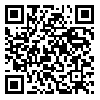1. 1. Serrien B, Tassignon B, Baeyens JP, Clijsen R. A critical review on the theoretical framework of differential motor learning and meta-analytic review on the empirical evidence of differential motor learning.
2. Schollhorn W, Michelbrink M, Welminsiki D, Davids KW. Increasing stochastic perturbations enhances acquisition and learning of complex sport movements. InPerspectives on cognition and action in sport 2009 Jul 30 (pp. 59-73). Nova Science Publishers, Inc..
3. Hristovski R, Davids K, Araujo D, Passos P. Constraints-induced emergence of functional novelty in complex neurobiological systems: a basis for creativity in sport. Nonlinear Dynamics-Psychology and Life Sciences. 2011 Apr 1;15(2):175.
4. Henz D, John A, Merz C, Schöllhorn WI. Post-task effects on EEG brain activity differ for various differential learning and contextual interference protocols. Frontiers in human neuroscience. 2018 Jan 31;12:19. [
DOI:10.3389/fnhum.2018.00019]
5. Hossner EJ, Käch B, Enz J. On the optimal degree of fluctuations in practice for motor learning. Human movement science. 2016 Jun 1;47:231-9. [
DOI:10.1016/j.humov.2015.06.007]
6. Hall KG, Magill RA. Variability of practice and contextual interference in motor skill learning. Journal of motor behavior. 1995 Dec 1;27(4):299-309. [
DOI:10.1080/00222895.1995.9941719]
7. Frank TD, Michelbrink M, Beckmann H, Schöllhorn WI. A quantitative dynamical systems approach to differential learning: self-organization principle and order parameter equations. Biological cybernetics. 2008 Jan 1;98(1):19-31. [
DOI:10.1007/s00422-007-0193-x]
8. Mateus N, Santos S, Vaz L, Gomes I, Leite N. The effect of a physical literacy and differential learning program in motor, technical and tactical basketball skills. Revista de psicología del deporte. 2015;24(1):73-6.
9. Savelsbergh GJ, Kamper WJ, Rabius J, De Koning JJ, Schöllhorn W. A new method to learn to start in speed skating: A differencial learning approach. International Journal of Sport Psychology. 2010 Oct 1;41(4):415.
10. I Schollhorn W, Hegen P, Davids K. The nonlinear nature of learning-A differential learning approach. The Open Sports Sciences Journal. 2012 Sep 13;5(1). [
DOI:10.2174/1875399X01205010100]
11. I Schollhorn W, Hegen P, Davids K. The nonlinear nature of learning-A differential learning approach. The Open Sports Sciences Journal. 2012 Sep 13;5(1). [
DOI:10.2174/1875399X01205010100]
12. Bozkurt S. The Effects of Differential Learning and Traditional Learning Trainings on Technical Development of Football Players. Journal of Education and Training Studies. 2018 Apr;6:25-9. [
DOI:10.11114/jets.v6i4a.3229]
13. Trockel M, Schöllhorn WI. Differential training in soccer. InEuropean workshop on movement science Mechanics and Physiology, Müster (Alemania) 2003 (pp. 22-24).
14. Serrien B, Tassignon B, Baeyens JP, Clijsen R. A critical review on the theoretical framework of differential motor learning and meta-analytic review on the empirical evidence of differential motor learning.
15. Schollhorn W, Michelbrink M, Welminsiki D, Davids KW. Increasing stochastic perturbations enhances acquisition and learning of complex sport movements. InPerspectives on cognition and action in sport 2009 Jul 30 (pp. 59-73). Nova Science Publishers, Inc..
16. Hristovski R, Davids K, Araujo D, Passos P. Constraints-induced emergence of functional novelty in complex neurobiological systems: a basis for creativity in sport. Nonlinear Dynamics-Psychology and Life Sciences. 2011 Apr 1;15(2):175.
17. Henz D, John A, Merz C, Schöllhorn WI. Post-task effects on EEG brain activity differ for various differential learning and contextual interference protocols. Frontiers in human neuroscience. 2018 Jan 31;12:19. [
DOI:10.3389/fnhum.2018.00019]
18. Hossner EJ, Käch B, Enz J. On the optimal degree of fluctuations in practice for motor learning. Human movement science. 2016 Jun 1;47:231-9. [
DOI:10.1016/j.humov.2015.06.007]
19. Hall KG, Magill RA. Variability of practice and contextual interference in motor skill learning. Journal of motor behavior. 1995 Dec 1;27(4):299-309. [
DOI:10.1080/00222895.1995.9941719]
20. Frank TD, Michelbrink M, Beckmann H, Schöllhorn WI. A quantitative dynamical systems approach to differential learning: self-organization principle and order parameter equations. Biological cybernetics. 2008 Jan 1;98(1):19-31. [
DOI:10.1007/s00422-007-0193-x]
21. Mateus N, Santos S, Vaz L, Gomes I, Leite N. The effect of a physical literacy and differential learning program in motor, technical and tactical basketball skills. Revista de psicología del deporte. 2015;24(1):73-6.
22. Savelsbergh GJ, Kamper WJ, Rabius J, De Koning JJ, Schöllhorn W. A new method to learn to start in speed skating: A differencial learning approach. International Journal of Sport Psychology. 2010 Oct 1;41(4):415.
23. I Schollhorn W, Hegen P, Davids K. The nonlinear nature of learning-A differential learning approach. The Open Sports Sciences Journal. 2012 Sep 13;5(1). [
DOI:10.2174/1875399X01205010100]
24. I Schollhorn W, Hegen P, Davids K. The nonlinear nature of learning-A differential learning approach. The Open Sports Sciences Journal. 2012 Sep 13;5(1). [
DOI:10.2174/1875399X01205010100]
25. Bozkurt S. The Effects of Differential Learning and Traditional Learning Trainings on Technical Development of Football Players. Journal of Education and Training Studies. 2018 Apr;6:25-9. [
DOI:10.11114/jets.v6i4a.3229]
26. Trockel M, Schöllhorn WI. Differential training in soccer. InEuropean workshop on movement science Mechanics and Physiology, Müster (Alemania) 2003 (pp. 22-24).

 ، رسول یاعلی2
، رسول یاعلی2 

 ، گلناز فائزی3
، گلناز فائزی3 
 ، سارا افتاده1
، سارا افتاده1 








